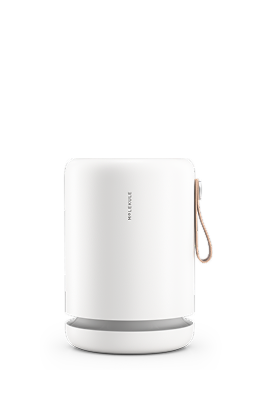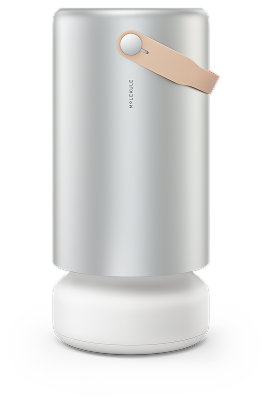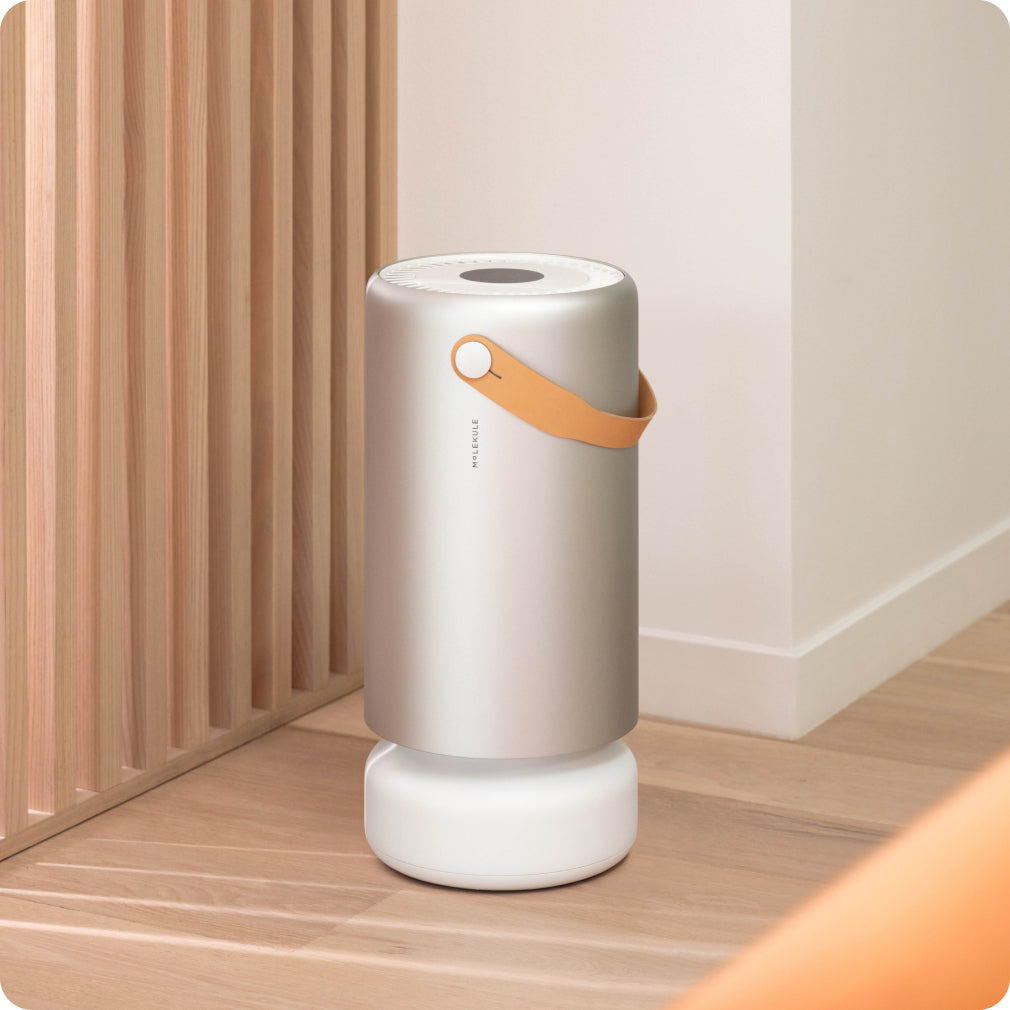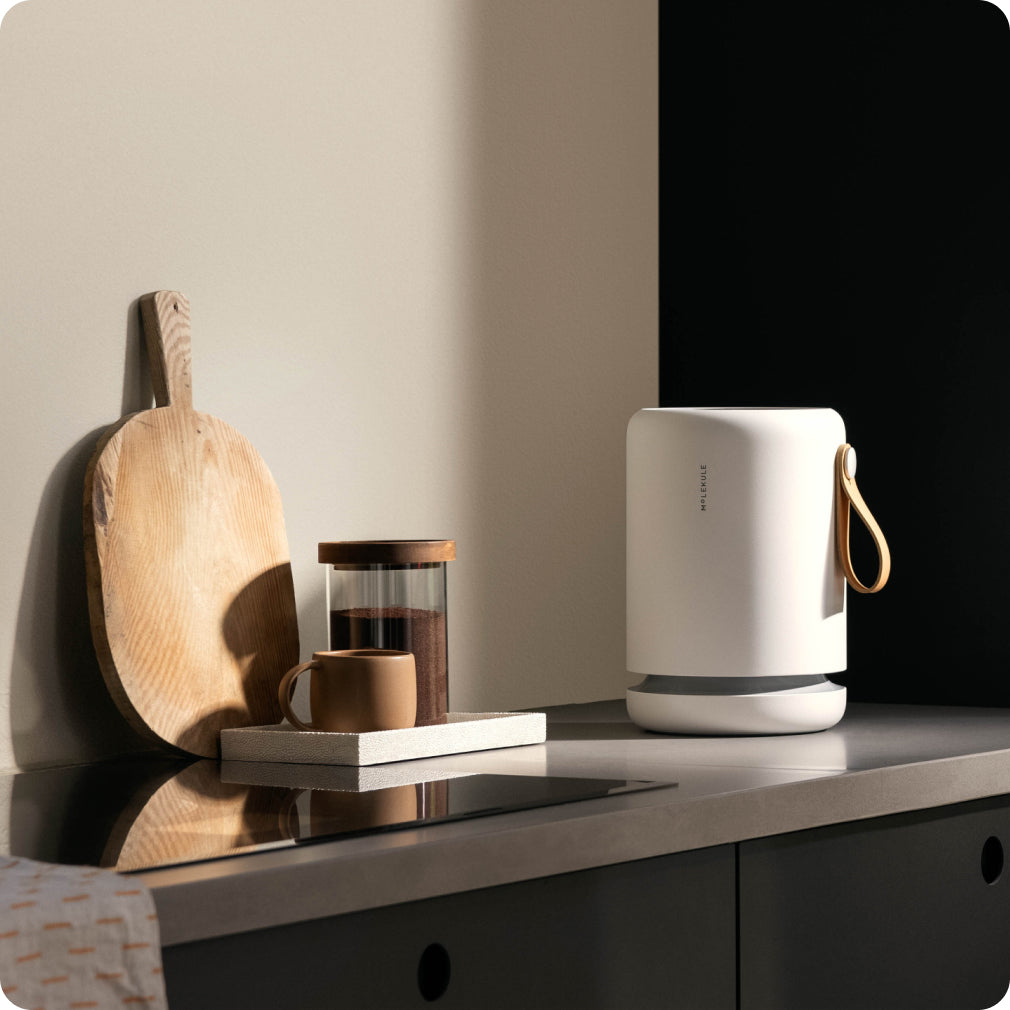No matter how often you clean your home, you’re going to deal with bad smells from time to time. And once you notice them, they can be pretty hard to ignore. Most of the time, you should be able to deal with weird household smells on your own with a little bit of elbow grease. First, try to narrow down the funky scent to a single room. Then, it’s time to put on your detective hat and sniff out the source of the odor. Let’s crack the case by exploring five common sources of household odors.

1. Old food and lingering cooking odors
When you smell something stinky in the kitchen, there’s a good chance that food is the culprit. Between cooking, eating, and storing food, there are plenty of opportunities for bad smells to accumulate in the kitchen. Fortunately, a little cleaning can go a long way in removing unpleasant food odors.
- Refrigerator: The seal around your refrigerator door is great at trapping bad odors, so you’ll probably only notice any unpleasant smells after you open the door. To freshen up a stinky fridge, throw away any spoiled food, clean up spills, and place an open box of baking soda on one of the shelves. Then, prevent future odors by storing food in airtight containers.
- Trash cans: When the smell gets worse every time you throw something away, it’s probably coming from your trash can. If the bin still reeks after you take out the trash, try cleaning it with soapy water or a bleach solution. After it’s dry, place a dryer sheet or sprinkle some baking soda in the bottom of the bin before putting in a new trash bag.
- Ovens, stovetops, and microwaves: If you spill any food while you’re cooking, there’s a good chance you’ll smell it again the next time you use that appliance. Cleaning your oven, stovetop, and microwave regularly (especially after you notice a food spill) can help cut down on cooking odors in your kitchen.
- Garbage disposal: Food and grease can build up in your garbage disposal over time, causing your kitchen sink to start smelling like rotting food or mildew. To clean and deodorize your disposal, try this vinegar-and-citrus solution. Simply fill an ice cube tray with small lemon wedges and white vinegar. Let it freeze overnight, then turn your sink on and run a few cubes through the disposal. Your kitchen should smell citrusy fresh in no time.

2. Clogged plumbing
If you notice a sewage smell in the bathroom, it may be from a clog in your plumbing system. Sometimes, you may be able to fix a stinky drain on your own by pouring boiling water or hot vinegar down the sink. For a more thorough cleaning job, try pouring one cup of baking soda and two cups of warm white vinegar down the drain. Let it bubble for a few minutes, then wash it down with a kettle of boiling water.
Sometimes, sewage odors can be caused by a dried-up P-trap (the U-shaped pipe that connects to the drains in your sinks, showers, and bathtubs). Usually, the bend in a P-trap is filled with water, creating a seal that keeps sewer gas and smells from entering your home. If you don’t use a drain regularly, its P-trap can dry up, clearing the way for bad odors to stink up the room. It’s easy to keep this from happening—just remember to run water through all of your drains at least once a month.
Cleaning your P-trap or U-bend
If your sink is too clogged to pour water or vinegar down the drain, you may need to clean out the P-trap. You can do this by following these steps:
- Put a bucket under your sink.
- Use your hands or a wrench to unscrew the connectors on either side of the U-shaped pipe.
- Carefully remove the pipe and dump its contents into your bucket.
- Pull out any visible debris, such as hair.
- Use a flexible wire brush to scrub the inside of the pipe.
- Reattach the pipe with the long side facing the sink drain.
- Run the water for at least 15 seconds to make sure the pipe is sealed and there are no leaks.

3. Mold and mildew
A musty smell usually means you’ve got mold or mildew somewhere in your home. So, to get rid of the musty odor, you’ll need to search your home for any leaky pipes, dripping faucets, or other sources of excess moisture. Mold and mildew thrive in warm, humid environments, so bathrooms, laundry rooms, and basements are especially prone to musty smells.
To get rid of the smell, your first step is to fix the source of the leak, if possible. Sometimes, this is as simple as tightening a faucet or shower head. For more complicated plumbing issues, you may need to call a professional.
Then, dry the area completely and clean up all visible mold and mildew. (For tips on doing this safely, check out the CDC’s mold cleanup guide.) Next, increase ventilation to prevent mold in the future by turning on fans or opening windows, especially during high-moisture activities like hot showers, washing dishes, and drying clothes.
Fixing a leaky toilet
A common source of musty smells in the bathroom is a leaky toilet. Moisture can accumulate around the base of a toilet when:
- Humidity in the air condenses on the toilet and drips down to the floor;
- The bolts attaching the toilet to the floor are loose;
- The wax seal under the toilet base is loose or leaking;
- The bolts connecting the toilet bowl and tank are loose.
Depending on the problem, fixing the leak may be as simple as tightening a few bolts. If you need to replace the wax seal, that may take a little longer. To do this, you’ll need to drain and remove the toilet, clean the flange, and replace the old wax seal with a new one.
4. Household pets
From wet dog smell to stinky litter boxes, pets can sure leave their mark on a home. Accidents, dirty tanks or cages, and even health issues can make animal smells an even bigger issue. If you notice any new odors or behaviors in your pets, get them checked out by your vet. Even if a stinky smell isn’t a sign of a health problem, your vet should be able to help you find a way to get rid of the odor.

Stinky dogs
Sometimes, a stinky dog just needs a bath. Other times, the smell may be a sign of a different issue. For example, a dog may start having indoor accidents because of stress or another health problem. Here are some other things that may cause your pup to smell a little off:
- Extra smelly flatulence could be a sign of a food allergy.
- Bad breath (halitosis) is typically caused by tartar, plaque buildup, or periodontal disease.
- Anal gland issues can cause a dog to scoot their rear end along the floor, leaving a trail of stinky secretions in their wake.

Smelly cats
With cats, the main source of odor is typically the litter box. To cut down on stinky litter, filter pet waste out of the box once every day or two. Then, deep clean the box at least once a month by throwing away all the used litter and scrubbing the empty box with soapy water. Make sure to let it dry before refilling it with new litter. If the litter box still smells after cleaning, it may be time to replace it (especially if you’ve had it for over a year).
When a cat’s stinky odor follows them outside the litter box, it may be a sign of a health issue, such as:
- Accidents outside of the litter box that may indicate a medical problem;
- Bad breath caused by dental disease or other issues;
- Anal gland issues;
- Flatulence caused by digestive problems;
- Skin infections.
Animal cages and tanks
If you have birds, small mammals, or reptiles, you probably know how quickly their enclosures can start to smell. Regular cleaning is the key to keeping animal cages from stinking up your home. Spot clean the cage every day, removing visible feces and wiping down any surfaces where your pet likes to go to the bathroom. At least once a week, completely change out the liner or bedding, wipe down the entire cage, and clean any toys or accessories in the cage. Putting the enclosure in a well-ventilated room and switching from a plastic to a metal cage (when possible) can also help cut down on odors.

5. Wild animals
Of course, pets aren’t the only animals that can create unpleasant odors in the home. Rodents and other unwelcome critters can leave a foul scent behind, whether they’re alive or dead. Cleaning the source of the smell should solve the problem, but it’s not always easy. If you suspect you may have a dead rodent in your home, your best bet is to look for droppings or tiny pawprints to help you figure out where it is.
If you find the rodent or its droppings, carefully dispose of them and clean the area with disinfectant. (Follow these CDC guidelines to reduce your chance of getting sick when cleaning up after a rodent.)
If you can’t find the dead rodent—and you’re not interested in cutting into your walls to locate it— you may have to deal with the smell until the body dries up. Orkin Pest Control estimates that a dead mouse can take around two weeks to stop stinking.
Dealing with weird smells in your home
At best, a stinky home is a minor annoyance. At worst, it may be a sign of a serious issue that could affect the health of the people and pets that live there. So, when it comes to bad odors, the best solution is to figure out the source as soon as possible. Once you know what you’re dealing with, you can figure out the best way to get rid of the stinky smell, keep it from coming back, and enjoy the fresh air in your home again.







